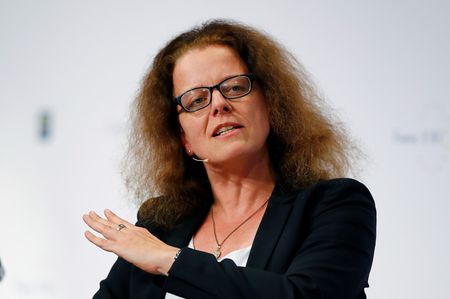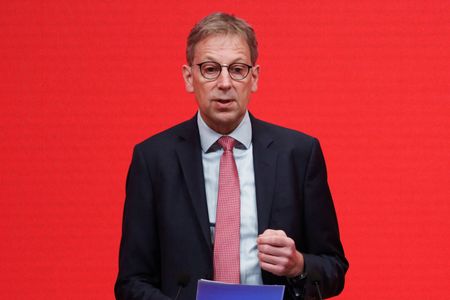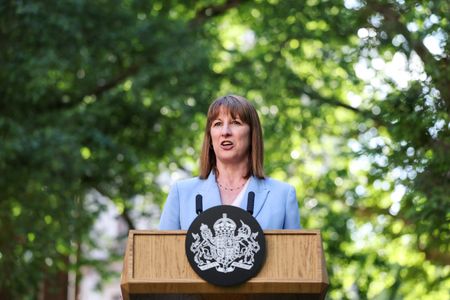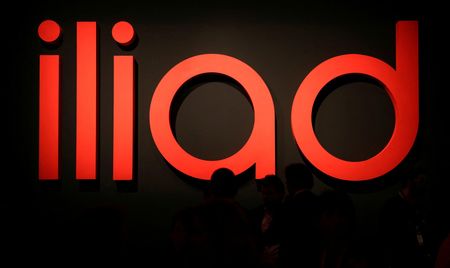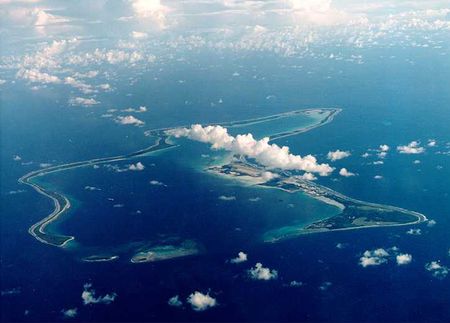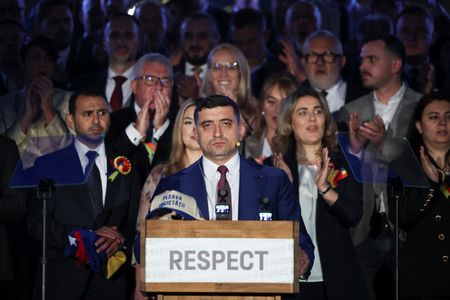By Balazs Koranyi
FRANKFURT (Reuters) -The European Central Bank is expected to cut interest rates once again in June but the case is growing for a pause beyond that as the economy is holding up better than feared and an inflation challenge is starting to creep up on the horizon.
The ECB has been easing policy quickly for the past year as runaway consumer inflation is now largely tamed and focus has shifted to anaemic economic growth, exacerbated by a global trade war, erratic U.S. policy and deeply rooted inefficiencies at home.
The ECB’s seven rate cuts in its last eight meetings have given the economy some breathing space and policymakers must now reconcile a divergence between the shorter and longer term outlook.
In the coming months, inflation could drop further and even undershoot the ECB’s 2% target, rekindling memories of the pre-pandemic decade when the ECB tried and failed to raise price growth back to target.
But in the longer run, a jump in government spending, deglobalisation, trade barriers and stress in the labour market from a shrinking working age population are all likely to put upward pressure on prices.
Policymakers speaking on and off the record suggest that the discussion is not so much about the June decision since that is already well baked into expectations, but about signals for subsequent months given longer term risks.
“Tariffs may be disinflationary in the short run but pose upside risks over the medium term,” ECB board member Isabel Schnabel, an outspoken policy hawk said in an explicit call for a pause.
“Even if the EU does not retaliate, higher production costs transmitted through global value chains could more than offset the disinflationary pressure coming from lower foreign demand, making tariffs inflationary overall,” Schnabel added.
Klaas Knot, the longest serving member of the ECB’s Governing Council, also warned about longer-term risks.
“The negative demand shock is immediate and will lead to lower inflation on the short run,” he said. “But the supply shock could lead to higher inflation in the middle to long term.”
The argument is that trade barriers raise prices for everyone and will lead to more fragmented production, which is inherently more costly.
Longer term inflation expectations have been inching up in recent weeks, especially since the U.S. struck a temporary trade deal with China, indicating that investors see inflation dipping first, then rebounding, possibly above 2%.
That creates a communication issue for the ECB.
Policymakers will be expected by some to provide accommodation if inflation indeed falls below 2% around the turn of the year on lower energy prices, weak growth, a stronger euro and dumping by manufacturers who face a tariff hit in the U.S.
PAUSE CASE
But the ECB’s task is to look past short-term oscillations and focus on the medium term, since policy impacts prices on a 12 to 18 month horizon and is considered largely powerless on the immediate future.
“The question is thus whether the ECB will dare to ‘look through’ this period of undershooting, or whether there are greater concerns for the anchoring of inflation expectations as inflation drops lower,” Societe Generale said in a note.
“We also feel less convinced about the need for a July rate cut given the easing of trade war tensions and resilient data, with an increased possibility that the ECB may choose to pause after June to gather more information,” Societe Generale added.
Financial investors also see a pause beyond June, anticipating just one final cut toward the end of the year, taking the deposit rate to 1.75%.
Although policymakers are not keen to explicitly signal policy, several, including France’s Francois Villeroy de Galhau, Finland’s Olli Rehn and Belgium’s Pierre Wunsch have all sent dovish signals, solidifying bets about June.
Others speaking off record say that June is largely a done deal and the real conversation is about July and beyond. They say that a distinct camp is already visible, looking to make clear that a pause is now needed.
Even if July is a skip, policymakers are still likely to maintain a bias towards more policy easing later in the year because the trade war has already done damage.
“The ECB’s easing bias remains alive and kicking,” TS Lombard said. “The evidence points to US tariffs depressing EA growth and inflation, while putting in question the job market celebrated ‘resilience’ through their hit to corporate profits.”
(Reporting by Balazs Koranyi; editing by Mark John and Toby Chopra)


